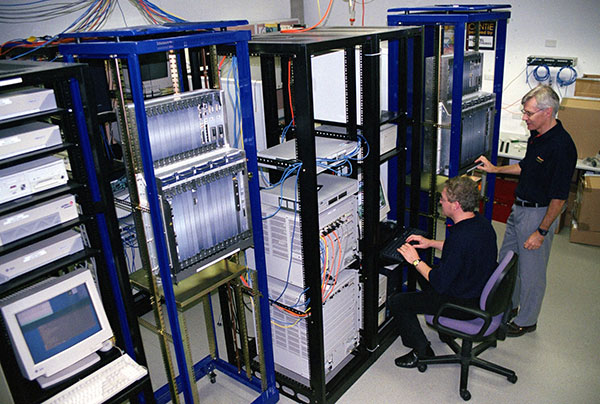Breaking News
- Ministry of Education and Sports Azerbaijan Government Scholarships For 2025-2026 Academic Year ...Read More
- Government Sponsorship Undergraduate Admission Lists 2025-26 for Makerere University ...Read More
- Ministry of Education And Sports: Egyptian Government Scholarships 2025-2026 Academic Year ...Read More
- Ground Breaker Full Scholarship for girls to study Software Engineering 2025 July Intake ...Read More
- Tony Elumelu Foundation Entrepreneurship Programme (TEEP) 2025 for young African Entrepreneurs ...Read More
- DESIGNING FUTURES 2050 International Design Competition 2025 (€15,000 prize) ...Read More
- Ground Breaker Full time Scholarship for girls to study Software Engineering 2025 Intake ...Read More
- Ministry of Education And Sports Algerian Vocational Training Scholarships for 2024-2025 AY ...Read More
- Ministry of Education and Sports Advert for the Algerian Government Scholarships for 2024-2025 ...Read More
- Uganda Dev Summit 2024 Live Stream ...Read More
Telecommunications Engineering Specialist
Design or configure voice, video, and data communications systems. Supervise installation and post-installation service and maintenance.
Add to FavouritesDesign or configure voice, video, and data communications systems. Supervise installation and post-installation service and maintenance.
Also known as: Corrosion Control Engineer, Mathematical Engineer, Optical Engineer, Ordnance Engineer, Photonics Engineer, Salvage Engineer
Daily Activities / Routine Tasks
Telecommunications Engineering Specialists do the following
1. Communicate with telecommunications vendors to obtain pricing and technical specifications for available hardware, software, or services.
2. Keep abreast of changes in industry practices and emerging telecommunications technology by reviewing current literature, talking with colleagues, participating in educational programs, attending meetings or workshops, or participating in professional organizations or conferences.
3. Implement or perform preventive maintenance, backup, or recovery procedures.
4. Consult with users, administrators, and engineers to identify business and technical requirements for proposed system modifications or technology purchases.
5. Assess existing facilities' needs for new or modified telecommunications systems.
6. Order or maintain inventory of telecommunications equipment for customer premises equipment (CPE), facilities, access networks, or backbone networks.
7. Install, or coordinate installation of, new or modified hardware, software, or programming modules of telecommunications systems.
8. Develop, maintain, or implement telecommunications disaster recovery plans to ensure business continuity.
9. Test and evaluate hardware and software to determine efficiency, reliability, or compatibility with existing systems.
10. Prepare purchase requisitions for computer hardware and software, networking and telecommunications equipment, test equipment, cabling, or tools.
11. Provide user support by diagnosing network and device problems and implementing technical or procedural solutions.
Key Knowledge Areas
To be a great Telecommunications Engineering Specialist, below are the key knowledge areas
Telecommunications — Knowledge of transmission, broadcasting, switching, control, and operation of telecommunications systems.
Computers and Electronics — Knowledge of circuit boards, processors, chips, electronic equipment, and computer hardware and software, including applications and programming.
English Language — Knowledge of the structure and content of the English language including the meaning and spelling of words, rules of composition, and grammar.
Administration and Management — Knowledge of business and management principles involved in strategic planning, resource allocation, human resources modeling, leadership technique, production methods, and coordination of people and resources.
Engineering and Technology — Knowledge of the practical application of engineering science and technology. This includes applying principles, techniques, procedures, and equipment to the design and production of various goods and services.
Mathematics — Knowledge of arithmetic, algebra, geometry, calculus, statistics, and their applications.
Design — Knowledge of design techniques, tools, and principles involved in production of precision technical plans, blueprints, drawings, and models.
Clerical — Knowledge of administrative and clerical procedures and systems such as word processing, managing files and records, stenography and transcription, designing forms, and other office procedures and terminology.
Skills / Important Qualities
To be a great Telecommunications Engineering Specialist, these skills are vital
Active Listening — Giving full attention to what other people are saying, taking time to understand the points being made, asking questions as appropriate, and not interrupting at inappropriate times.
Critical Thinking — Using logic and reasoning to identify the strengths and weaknesses of alternative solutions, conclusions or approaches to problems.
Complex Problem Solving — Identifying complex problems and reviewing related information to develop and evaluate options and implement solutions.
Systems Evaluation — Identifying measures or indicators of system performance and the actions needed to improve or correct performance, relative to the goals of the system.
Systems Analysis — Determining how a system should work and how changes in conditions, operations, and the environment will affect outcomes.
Judgment and Decision Making — Considering the relative costs and benefits of potential actions to choose the most appropriate one.
Monitoring — Monitoring/Assessing performance of yourself, other individuals, or organizations to make improvements or take corrective action.







































